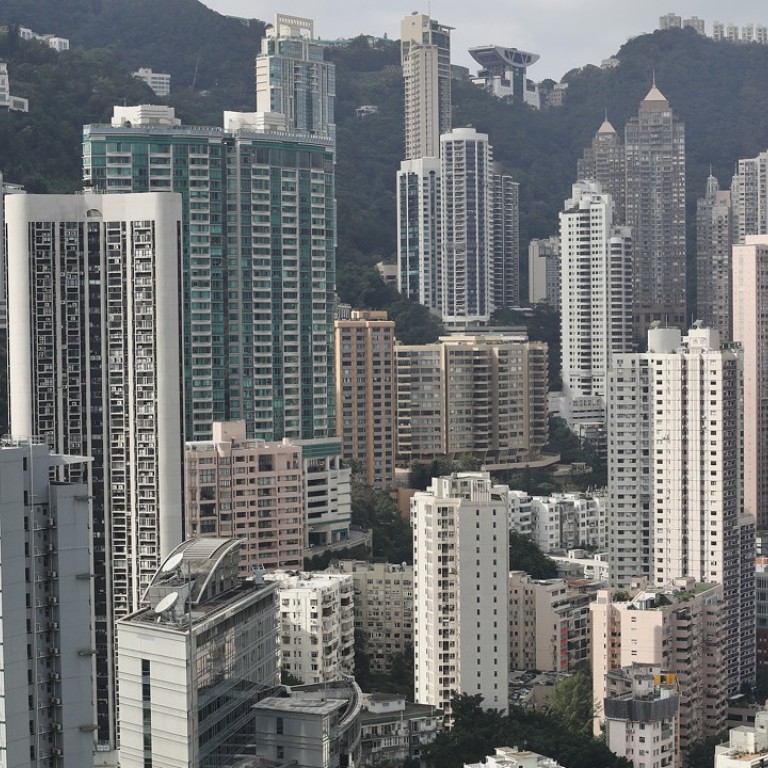
I never said I’d help halt soaring property prices: Hong Kong leader Carrie Lam
Government cannot suppress the home price hike, says chief executive
Hong Kong’s leader says she has never pledged to turn the tide on surging property prices in the city, which has remained the world’s priciest home market for the seventh year.
Instead, Chief Executive Carrie Lam Cheng Yuet-ngor claimed what she hoped to reverse was the housing shortage. That was why her administration would try to constantly boost land supply in a bid to meet market demand, she added.
Lam’s latest remarks appeared to deviate subtly from her policy address, which stated that both “the current shortage in housing supply and surging property prices have resulted from both external and internal factors” and that her administration was determined to rectify the situation with the greatest effort.
Lam, who took the helm as the city’s leader more than five months ago, was speaking to RTHK in an interview aired on Friday.
7 things you need to know from Carrie Lam’s policy address
Critics have slammed plans she introduced in her maiden policy address in October, saying they have failed to stop home prices from skyrocketing.
“I have never said [I would] turn the tide of the soaring property prices as [they] could be triggered by a lot of factors,” she said, adding the government cannot suppress the home price hike.
She also cast doubts on the effectiveness of cooling measures introduced by the government in past years.
“You could see the different cooling measures have failed to lower property prices,” she said.
“On the contrary, some people even suggest it is perhaps the cooling measures that have driven up the home prices – as the difficulties in purchasing flats from the secondary market have prompted the prices of first-hand properties to surge.”
Last year, the government raised the property stamp duty for the second time in three years for non-first-time buyers in a bid to curb soaring real estate prices and investment demand.
However, home prices have risen for 19 consecutive months as of October, the latest official figures showed. Prices have risen about 11 per cent so far this year, with the sharpest gains seen in tiny flats and luxury homes.
The average price of a 400 sq ft flat in Kowloon would be around HK$5.3 million, according to Rating and Valuation Department estimates.
Lawrence Poon Wing-cheung, a real estate policy expert at City University, said the government would not have to regulate property prices if there was a sufficient supply of subsidised flats.
“If the government is able to solve livelihood issues by ensuring a steady supply of affordable, subsidised flats, no one will say there is a need for the government to intervene in the property market,” Poon said, using the supply of private and public hospitals as an analogy.
“If there are enough public hospitals to cater to the needs of the public, no one will care about how expensive prices are at private hospitals.”
The government has set a target of building 18,000 private and 8,000 subsidised flats a year for the next decade.
Poon suggested the government allocate more land to build subsidised flats instead of private ones, and that the target should be the other way round – build 8,000 private and 18,000 subsidised flats a year.
Sammy Po Siu-ming, chief executive of Midland Realty’s residential division, said Lam’s policy to focus on boosting supply was “going in the right direction”.
Po added: “I think Lam is learning a lesson from her predecessor Leung Chun-ying. He tried to launch so many property cooling measures in his term, but they only made property prices go up more.”
He said the cooling measures had only attributed to an “unhealthy property market” in which transaction volume had fallen drastically from 80,000 a year to 50,000, but prices had continued to rise.
“It is very difficult to try to curb property prices when housing demand and investment demand are both so strong. Trying to control demand is not the way to go,” Po said.


